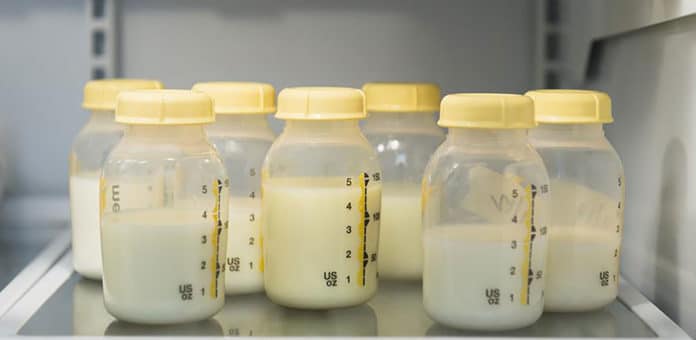Breast tissue changes over time during puberty, pregnancy, breastfeeding, and aging. In a new study, scientists at the Wellcome-MRC Cambridge Stem Cell Institute (CSCI) and the Department of Pharmacology at the University of Cambridge explored the cellular changes in human mammary tissue in lactating and non-lactating women.
The cells in the breast milk were once thought to be dead or dying. But, this new study has shown that these cells are much alive. These cells provide scientists a chance to examine the changes that occur in mammary tissues during lactation and insight into a potential early indicator of future breast cancer development.
Dr. Alecia-Jane Twigger at the Wellcome-MRC Cambridge Stem Cell Institute who led the study, said, “I believe that by studying human milk cells, we will be able to answer some of the most fundamental questions around mammary gland function such as: how is milk produced? Why do some women struggle to make milk? and what strategies can be employed to improve breastfeeding outcomes for women?”
Scientists collected voluntary breast milk samples from lactating women and samples of non-lactating breast tissue donated from women who elected to have aesthetic breast reduction surgery. They performed single-cell RNA sequencing analysis to compare the composition of the mammary cells taken using these two methods. They identified the distinctions between lactating and non-lactating human mammary glands.
By collecting breast milk samples donated by breastfeeding women, scientists could capture dynamic cells in a non-invasive way. This greater ease of access to breast cells can open the door to more studies on women’s health in the future.
Dr. Walid Khaled, at the Wellcome-MRC Cambridge Stem Cell Institute and University of Cambridge’s Department of Pharmacology, said, “The first time Alecia told me that she found live cells in milk, I was surprised and excited about the possibilities. We hope this finding will enable future studies into the early steps of breast cancer.”
Journal Reference:
- Twigger, A., et al.: ‘Transcriptional changes in the mammary gland during lactation revealed by single-cell sequencing of cells from human milk.’ Nature Communications, Jan 2022. DOI: 10.1038/s41467-021-27895-0
